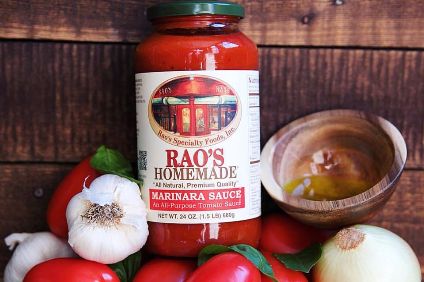
US manufacturer Sovos Brands, fresh from buying local bakery business Birch Benders, is on the look-out for more acquisitions, according to a senior executive.
Jason Vieth, a senior vice president at Sovos, continues to look for “one-of-a-kind” brands to add to its portfolio.

Discover B2B Marketing That Performs
Combine business intelligence and editorial excellence to reach engaged professionals across 36 leading media platforms.
“We do, despite now having acquired Birch Benders, have our eyes still on additional targets and will continue to stay in touch with them and monitor their progress,” Vieth told just-food. “We’ll continue to make acquisitions as part of our strategy over the next years.”
California-based Sovos was set up in 2016 by private-equity firm Advent International to become a “scale player” in the US food industry.
Last month, Sovos added Birch Benders to a portfolio built through M&A that also contains Rao’s cooking sauces, Noosa yogurt and Michael Angelo’s ready meals. Sovos has annual retail sales of more than US$750m.
Vieth characterised “one-of-a-kind” brands as “unique brand characters and really resonate with consumers, not only from product functional level but from an emotive benefit level as well”.

US Tariffs are shifting - will you react or anticipate?
Don’t let policy changes catch you off guard. Stay proactive with real-time data and expert analysis.
By GlobalDataHe added: “A combination of great food, typically a great backstory for the brand, essentially how it was created by the founders and why they created and that combination creates something unique and enduring that the larger incumbent brands have a hard time competing against.”
Vieth joined Sovos in January after three years at health-club chain Life Time Inc. From 2008 to 2017, he worked for WhiteWave Foods, the US dairy and dairy-alternatives business that is now part of Danone.
Reflecting on M&A activity in the US packaged food market, he said: “I’ve seen less consolidation thus far than what I would have anticipated and I believe that’s because this crisis has been beneficial to most food manufacturers than not.
“If you’re playing in the grocery retail space you’re probably doing better than a year or two ago and not with an incremental level of cost. In fact, a number of commodity costs have gone down, so your overall profitability also looks better and, as a result, you’re in a stronger financial position to continue to run the business and drive towards a larger exit. I think the big CPGs have been largely head down, just managing their businesses, so there’s been less M&A activity than I would have anticipated.”
Potential buyers, Vieth suggested, face a challenge in working out the underlying performance of a business that may have had a boost from elevated demand for food for at-home consumption due to Covid-19.
“I think as an acquirer you try to diagnose what that Covid bump was the company received by virtue of consumers coming back to the grocery store and making the majority of their meal purchases there,” he said. “You try to remove that and get to what you would call a stable level of sales. The challenge is understanding a) how large it was and b) how sticky it was.”
just-food interview pages: Covid-19 – US manufacturers talk trading, the economy and consumers



